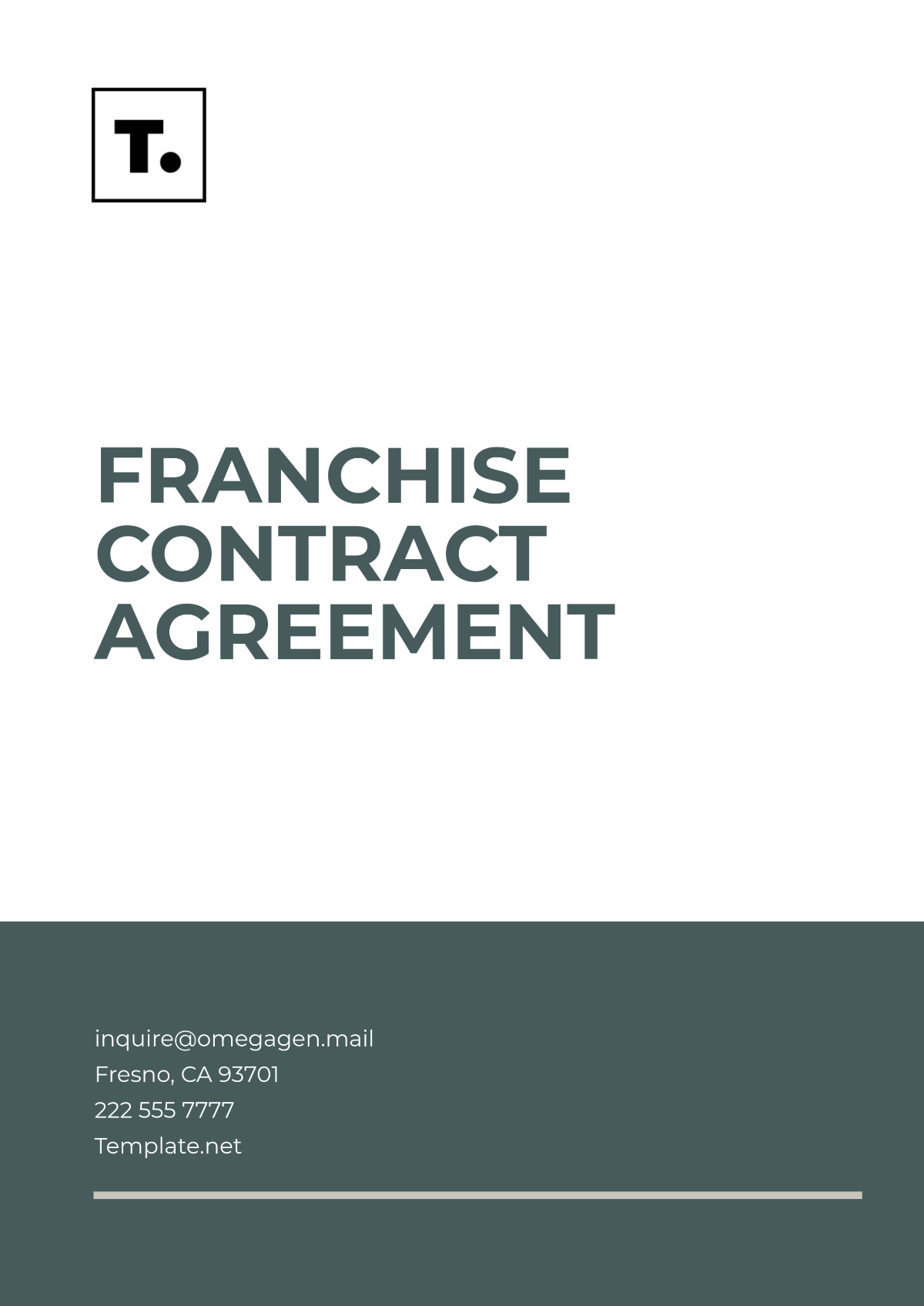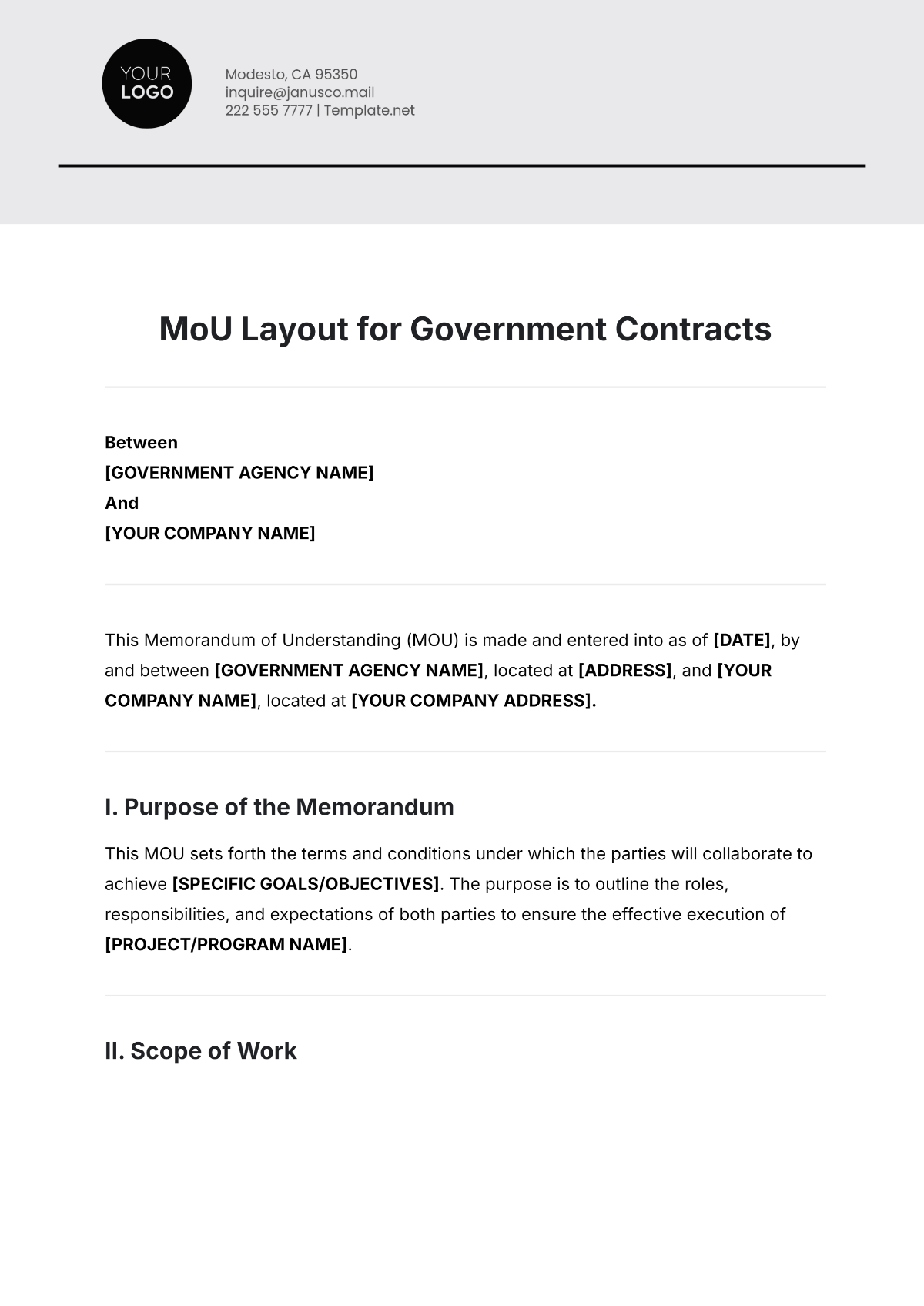CANCELLATION CONTRACT
This Cancellation Contract ("Cancellation Contract") is entered into on this [insert date] ("Effective Date") by and between [Your Name], a software company having its primary place of business at [Your Company Address], herein referred to as "Party A" or "The Contractor," and [Party B Name], a marketing agency located at [Party B Address], herein referred to as "Party B" or "The Client."
1. TERMINATION BY CLIENT
1.1 Termination Right
In the dynamic landscape of business, unforeseen circumstances can arise, impacting project feasibility and budgetary constraints. In recognition of this reality, Party B reserves the right to terminate this Contract by providing written notice to Party A. This termination right is exercised in the event of unforeseen budget constraints that render the continuation of the project untenable. To ensure a smooth transition and mitigate disruption, Party B shall provide a minimum notice period of [insert number] days prior to the intended termination date, allowing both parties to plan accordingly and minimize any adverse effects on ongoing operations and commitments.
1.2 Obligations Upon Termination
Upon the occurrence of termination, Party A pledges to promptly cease all activities related to the development of the custom software platform ("Services"). Recognizing the investments made by both parties, Party A commits to delivering to Party B all work completed up to the termination date. This delivery encompasses any tangible outputs, documentation, or intellectual property developed during the course of the project. In accordance with the principles of fairness and equity, Party B shall honor payment for any completed and accepted work, adhering meticulously to the payment schedule delineated below. This ensures that the efforts expended by Party A are duly recognized and compensated, fostering a sense of mutual respect and professionalism between the contracting parties.
2. PAYMENT SCHEDULE
Milestone | Payment Percentage | Due Date |
|---|---|---|
Initial Payment | [Insert Percentage]% | Upon Contract Signing |
Design and Development | [Insert Percentage]% | Upon Completion of Phase 1 |
Testing and Iteration | [Insert Percentage]% | Upon Completion of Phase 2 |
Deployment and Launch | [Insert Percentage]% | Upon Completion of Phase 3 |
Final Payment | [Insert Percentage]% | Upon Successful Deployment |
3. CONFIDENTIALITY
3.1 Acknowledgment of Ongoing Obligations
In the realm of business collaboration, the exchange of proprietary information is often a vital component of project execution. Both parties involved in this Contract solemnly acknowledge and affirm their ongoing obligations to maintain the strictest confidentiality concerning any proprietary information exchanged during the course of the project. This commitment extends beyond the termination of the Contract, underscoring the enduring importance of safeguarding sensitive data and intellectual property.
3.2 Scope of Confidential Information
The ambit of confidential information encompasses a broad spectrum of proprietary assets, including, but not limited to, trade secrets, business plans, strategies, financial information, technical data, and any other proprietary information disclosed or generated during the project's lifespan. Both parties recognize the intrinsic value and sensitivity of such information and pledge to exercise utmost diligence in its protection.
3.3 Non-Disclosure Provisions
Confidential information shall be treated with the highest degree of confidentiality and discretion. Under no circumstances shall either party disclose or divulge such information to any third party without the express written consent of the disclosing party, except as mandated by applicable law or legal process. This stringent provision serves as a bulwark against unauthorized disclosure or misuse of confidential information, reinforcing trust and integrity in the business relationship.
3.4 Safeguarding Measures
In furtherance of the confidentiality obligations delineated herein, both parties agree to implement robust safeguards and security measures to protect confidential information from unauthorized access, use, or disclosure. These measures may include, but are not limited to, encryption protocols, access controls, non-disclosure agreements with employees and contractors, and physical security measures.
3.5 Duration of Confidentiality Obligations
The confidentiality obligations set forth in this Contract shall endure beyond the termination or expiration of the Contract, remaining in full force and effect indefinitely, unless and until the confidential information becomes part of the public domain through no fault or breach of either party.
3.6 Remedies for Breach
In the event of any breach or threatened breach of the confidentiality obligations contained herein, the non-breaching party shall be entitled to seek injunctive relief, specific performance, or any other equitable remedies available at law or in equity, in addition to any other remedies provided for under this Contract or by applicable law.
INDEMNIFICATION
4.1 Preservation of Indemnification Commitments
In the realm of contractual agreements, the concept of indemnification serves as a crucial mechanism for allocating risks and liabilities between parties. The parties to this Contract acknowledge the significance of indemnification obligations in ensuring accountability and safeguarding against potential risks. Accordingly, the indemnification obligations delineated in Section 10 of the original Contract shall transcend the termination of this Contract, persevering in full force and effect beyond the cessation of contractual relations.
4.2 Enduring Protection
The decision to uphold the survival of indemnification obligations post-termination underscores the parties' commitment to honor their respective responsibilities and liabilities, even in the absence of an active contractual engagement. By preserving these indemnification commitments, the parties acknowledge the enduring nature of potential liabilities and the need for ongoing protection against unforeseen contingencies or disputes that may arise subsequent to the Contract's termination.
4.3 Ensuring Continuity and Certainty
The continuation of indemnification obligations beyond the termination of the Contract provides a measure of continuity and certainty in the realm of risk management and liability allocation. This ensures that parties remain accountable for their actions and commitments, fostering trust and confidence in the integrity and reliability of the contractual relationship, both during its lifespan and in its aftermath.
4.4 Comprehensive Risk Mitigation
In recognizing the importance of comprehensive risk mitigation, the parties reaffirm their commitment to honor indemnification obligations even in the absence of an active contractual framework. This proactive approach to risk management serves to protect the interests of both parties and promote the equitable resolution of any disputes or claims that may arise subsequent to the Contract's termination.
4.5 Legal and Equitable Remedies
In the event of any breach or failure to honor indemnification obligations post-termination, the aggrieved party shall be entitled to seek legal or equitable remedies available under applicable law or the terms of the original Contract. Such remedies may include, but are not limited to, monetary damages, injunctive relief, specific performance, or any other remedies deemed appropriate by a court of competent jurisdiction.
NO FURTHER OBLIGATIONS
5.1 Mutual Release of Future Obligations
Upon the effective date of termination, a pivotal juncture marking the conclusion of contractual relations, both parties mutually release each other from any further obligations under this Contract. This release encompasses all prospective commitments and responsibilities that may have otherwise arisen in the course of ongoing performance under the Contract. By effectuating this mutual release, the parties seek to definitively and comprehensively sever their contractual ties, facilitating a clean break and enabling each party to pursue alternative courses of action unencumbered by lingering contractual obligations.
5.2 Embracing Closure and Finality
The decision to release future obligations embodies a collective acknowledgment of closure and finality in the contractual relationship. By disentangling themselves from any prospective obligations arising from the Contract, the parties embrace the opportunity for closure and the freedom to chart new paths unimpeded by the constraints of prior commitments. This release serves as a definitive endpoint, marking the culmination of contractual obligations and paving the way for the parties to move forward with clarity and certainty.
5.3 Excepted Obligations
Notwithstanding the comprehensive release of future obligations, it is imperative to note that certain obligations expressly stated to survive termination shall remain in force and effect beyond the effective date of termination. These excepted obligations, typically pertaining to matters such as confidentiality, indemnification, and dispute resolution, serve as enduring pillars of accountability and responsibility, ensuring that the parties honor their commitments even in the absence of an active contractual engagement.
5.4 Facilitating Transition and Closure
The release of future obligations serves as a pivotal step in facilitating a smooth transition and closure in the aftermath of termination. By absolving each other of prospective commitments, the parties embrace the opportunity for closure and embark on new endeavors with renewed focus and determination. This release fosters a sense of closure and finality, enabling the parties to part ways amicably and with mutual respect, notwithstanding the termination of the contractual relationship.
5.5 Good Faith and Cooperation
In effectuating the release of future obligations, the parties commit to acting in good faith and cooperating with each other to ensure a seamless transition and closure. This spirit of cooperation underscores the parties' mutual desire to facilitate an amicable resolution and move forward with dignity and respect, despite the termination of the Contract.
AMENDMENTS
6.1 Preservation of Contractual Integrity
In recognition of the finality and closure attendant upon termination, it is hereby stipulated that no amendments or modifications to this Cancellation Contract shall be effective unless made in writing and executed by both parties. This provision serves as a safeguard against any unilateral alterations or revisions to the terms and conditions of the Contract following its termination, thereby preserving the integrity and sanctity of the contractual agreement.
6.2 Upholding Contractual Certainty
The prohibition on amendments post-termination is predicated on the fundamental principle of contractual certainty and predictability. By mandating that any amendments or modifications be made in writing and executed by both parties, this provision ensures that changes to the Contract are subject to mutual agreement and formalization, thereby minimizing the risk of ambiguity, misunderstanding, or dispute.
6.3 Safeguarding Against Post-Termination Ambiguity
In the aftermath of termination, clarity and certainty assume heightened significance in delineating the rights, obligations, and responsibilities of the parties. The prohibition on amendments post-termination serves as a bulwark against potential confusion or ambiguity arising from unilateral attempts to alter or amend the terms of the Contract without the requisite consent of both parties.
6.4 Preserving Equitable Bargain
The requirement for mutual agreement and formal execution of any amendments post-termination reaffirms the parties' commitment to upholding the equitable bargain struck at the inception of the Contract. By preserving the integrity of the original terms and conditions, this provision promotes fairness, transparency, and adherence to the spirit of the Contract, even in its aftermath.
6.5 Ensuring Compliance and Enforcement
Any amendments or modifications made in contravention of this provision shall be deemed null and void ab initio, lacking the requisite legal force and effect. This underscores the imperative of compliance with the contractual stipulations and underscores the parties' commitment to upholding the sanctity of the Contract, both during its lifespan and in its aftermath.
GOVERNING LAW AND DISPUTE RESOLUTION
7.1 Governing Law
In adherence to principles of legal clarity and jurisdictional coherence, it is hereby stipulated that this Cancellation Contract shall be governed by and construed in accordance with the laws of [Insert Jurisdiction]. This choice of law provision provides a foundational framework for interpreting and enforcing the terms of the Contract, ensuring uniformity and predictability in the resolution of any legal issues or disputes that may arise.
7.2 Dispute Resolution
Good Faith Negotiations: Recognizing the inherent value of amicable resolution and mutual cooperation, any dispute arising out of or in connection with this Cancellation Contract shall initially be subjected to good faith negotiations between the parties. This initial phase of dispute resolution underscores the parties' commitment to resolving conflicts in a collaborative and constructive manner, with a view towards preserving the integrity of the contractual relationship.
Escalation to Legal Proceedings: In the event that the parties are unable to achieve a mutually satisfactory resolution through good faith negotiations within the stipulated timeframe of [insert number] days, either party reserves the right to initiate legal proceedings. Such legal proceedings shall be conducted in accordance with the dispute resolution provisions set forth in the original Contract, thereby ensuring consistency and adherence to established procedures for the resolution of disputes.
Preservation of Legal Recourse: The provision for dispute resolution through good faith negotiations followed by legal proceedings underscores the parties' commitment to exhaust all available avenues for resolving conflicts in a fair and equitable manner. By affording both parties the opportunity to engage in meaningful negotiations and pursue legal recourse if necessary, this provision promotes transparency, accountability, and the preservation of legal rights and remedies.
Adherence to Contractual Framework: Throughout the dispute resolution process, both parties shall adhere diligently to the terms and conditions set forth in the original Contract, including any specific provisions relating to dispute resolution. This ensures consistency and coherence in the application of contractual remedies and promotes a structured approach to resolving conflicts within the framework of the Contract.
IN WITNESS WHEREOF,
the parties have executed this Cancellation Contract as of the [Effective Date].

[YOUR NAME]
Party A
[Date]

[PARTY B'S NAME]
Party B
[Date]

















































